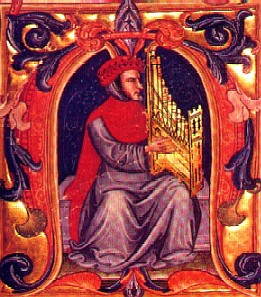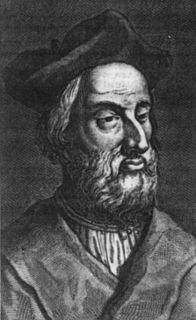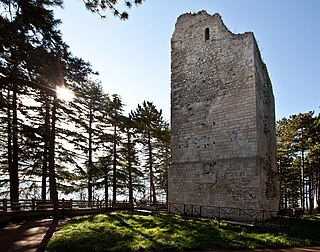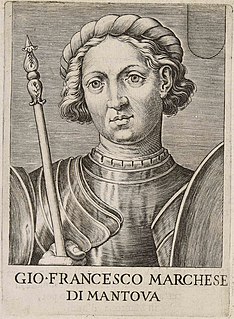Related Research Articles

Francesco Petrarca, commonly anglicized as Petrarch, was an Italian scholar and poet during the early Italian Renaissance, and one of the earliest humanists.
This article contains information about the literary events and publications of 1541.

Francesco Landini was an Italian composer, organist, singer, poet and instrument maker who was a central figure of the Trecento style in late Medieval music. One of the most revered composers of the second half of the 14th-century, he was by far the most famous composer in Italy.

Orlando Innamorato is an epic poem written by the Italian Renaissance author Matteo Maria Boiardo. The poem is a romance concerning the heroic knight Orlando (Roland). It was published between 1483 and 1495.
Dolce Stil Novo, or stilnovismo[stilnoˈvizmo], is the name given to the most important literary movement of the 13th century in Italy. Influenced by the Sicilian School and Tuscan poetry, its main theme is Love (Amore). Gentilezza (Noblemindedness) and Amore are indeed topoi in the major works of the period. The name Dolce Stil Novo was used for the first time by Dante Alighieri. When he arrives in Purgatory he meets Bonagiunta Orbicciani, a 13th-century Italian poet, who tells Dante that Dante himself, Guido Guinizelli, and Guido Cavalcanti had been able to create a new genre: a stil novo. Precursors to the dolce stil novo are found in the Provençal works of the troubadours, such as the Genoese Lanfranc Cigala. The artists of the stil novo are called stilnovisti.

Antonio Francesco Grazzini or Antonfrancisco Grazzini was an Italian author.

Francesco Berni was an Italian poet. He is credited for beginning what is now known as "Bernesque poetry", a serio-comedic type of poetry with elements of satire.
Italian literature is written in the Italian language, particularly within Italy. It may also refer to literature written by Italians or in Italy in other languages spoken in Italy, often languages that are closely related to modern Italian. Italian literature begins in the 12th century when in different regions of the peninsula the Italian vernacular started to be used in a literary manner. The Ritmo laurenziano is the first extant document of Italian literature.

Guardiagrele is a town and comune in the province of Chieti, part of the Abruzzo region of central Italy. It is in the foothills of the Maiella mountain at an elevation of around 576 metres (1,890 ft). Its population numbers about 10,000.

Lamporecchio is a comune (municipality) in the Province of Pistoia in the Italian region Tuscany, located about 30 kilometres (19 mi) west of Florence and about 13 kilometres (8 mi) south of Pistoia, 15 kilometres (9 mi) east of Montecatini Terme, and 4 kilometres (2.5 mi) west of Vinci.

From Corleone to Brooklyn is an Italian poliziotteschi film directed by Umberto Lenzi. The film was released in Italy on 13 April 1979 and stars Maurizio Merli, Mario Merola and Van Johnson.

Francesco, the Italian version of the personal name "Francis", is the most common given name among males in Italy. Notable persons with that name include:

The 1769 papal conclave, was convoked after the death of Pope Clement XIII. It elected as his successor Cardinal Lorenzo Ganganelli, who took the name Clement XIV.
Nationality words link to articles with information on the nation's poetry or literature.
Nationality words link to articles with information on the nation's poetry or literature.
Nationality words link to articles with information on the nation's poetry or literature.
Nationality words link to articles with information on the nation's poetry or literature.

Duecento is the Italian word for the Italian culture during the 13th century.
Francesco Scotti is an Italian footballer who plays as a goalkeeper for Rimini in Serie D. Scotti has spent most of his career in Italian Serie C and Serie D
Bèrni or Berni is an Italian surname, may refer to:
References
- ↑ "Francesco Berni". Life in Italy. 2019-09-21. Retrieved 2020-05-02.
- ↑ Dynes, Wayne R. (2016-03-22). Encyclopedia of Homosexuality: Volume I. Routledge. ISBN 978-1-317-36815-1.